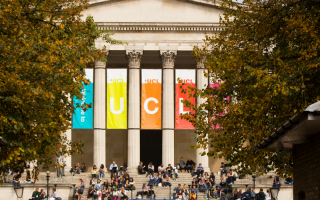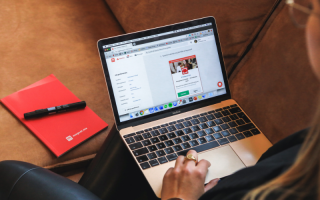What to expect from a university-level education and how you will learn with us at UCL
Your Education

Timeline for your undergraduate degree
Getting to know UCL
- New UCL students – ‘New Students’ homepage is designed to make each step of your journey to joining UCL as smooth as possible.
- Welcome Fair – start with our insider's guide to Welcome Fair.
- Welcome to the Students' Union UCL.
- UCL Introductory Programme – get to know the campus, characters and different aspects of UCL before you arrive with this interactive site.
- UCL International Student Orientation – complete our online orientation course and sign yourself up for webinars, seminars, talks and mixer events.
- UCL Events & Activities – find out what's going on across UCL.
How will I learn at university?
While these approaches don't cover all learning methods here at UCL, these are some of the most common educational approaches at university.
- Lectures
Traditionally, lectures are a way to deliver core subject content to larger groups of students. This could be anywhere from 20-350 students. Lectures can bring together groups of students studying different programmes but where there are common learning concepts that need to be studied. While the traditional format is for a lecturer to stand at the front and deliver information via slides, lectures are increasingly becoming more interactive and you may find that you break into small groups, answer questions and engage with interactive tools built into the lecture slides - like Mentimeter.
Tips for lectures:
- You will want to take notes during your lectures but don't try to write everything down. Take a look at UCL's tips for taking notes or The Open University have a notetaking techniques course.
- Make use of any lecture recordings. Most lectures are recorded and will be accessible via our lecture recordings software, Lecturecast. You can usually access this via your course's Moodle page.
- Make sure you do any relevant readings ahead of your lecture. This will help you engage with the lecture and follow what is being said. Sometimes there will also be videos to watch prior the lecture.
- Don't be afraid to ask questions. The lecturers would rather know if there is anything that you don't understand rather than have you struggle in silence and it's probably not just you! If you don't feel confident during the lecture, you might want to note any questions you have to ask in your seminars, via discussion forums on Moodle or take to your personal tutor.
- Seminars
Seminars are regular, timetabled small group sessions for around 5-30 students. You will find they are more interactive in nature than you might have experienced at school or college. The expectation will be that you contribute to the discussion. You may have set readings to undertake before your seminars, so it is important that you spend time preparing for them. Seminars will be your opportunity to engage with other students and staff, including trained and enthusiastic postgraduate teaching assistants. Further down the line, you might find you are asked to give a presentation on topics you have been asked to prepare, either by yourself or in small groups. Seminars are your opportunity to engage, analyse and discuss what you are learning in your modules, and get to know others on your course.
Tips for seminars:
- Make sure you set aside time to prepare. If you have been asked to do some reading beforehand, you could summarise key points and note any questions you have.
- If you feel anxious about contributing to your seminars, set yourself a goal to make just one contribution and try to make it early on to get over that hurdle. You will find once you start contributing, it will get easier and you will want to do it more.
- Try to focus on the discussion rather than worry about your own contribution and remember that other students will feel just as nervous as you do.
- Don't interrupt others and respect divergent opinions.
- Personal tutorials
Personal tutorials can be 1-to-1 or in small groups and often deal with your broader learning and development, including your wellbeing at university. They are your opportunity to discuss your development, career goals, module choices and to find out more about what UCL can offer you. Personal tutorials are also a way to get to know a member of staff better. If you have any difficulties or feel overwhelmed at all, you can talk to your personal tutor. They may not have the solution, but they know UCL well and can help you get support quicker than if you were trying to figure it out on your own.
There are loads of resources on our dedicated personal tutoring pages to help you make the most out of your tutorials.
- Independent learning
At university, there is a greater emphasis placed on independent learning. Independent learning is about you taking an active role in your education. This means planning and prioritising your time, managing your deadlines, and taking responsibility for your workload and other commitments. Independent study isn't a skill you are expected to acquire upon becoming an undergraduate. The learning and activities as part of your programme of study will support and lead you towards independent study through inquiry and exploration.
Tips for independent learning:
- You can access your timetable on Portico to help you plan your week effectively.
- For each module, there will be a related Moodle page that sets out your work weekly and lets you know your assignment deadlines. Make a note of these key deadlines so that you know what you are working towards and when your busy periods will be.
- Don't forget to factor in your other commitments: personal, work, sports, wellbeing etc.
- Find ways to manage your time that works for you. UCL has a guide on managing your time, as does the Open University (Time Management Skills) but everyone is different so if something isn't working, try another approach.
- Labs and practical sessions
Depending on your subject, you may also find you have more practical sessions and even fieldwork. Science, medicine, engineering, art and design subjects may have very hands-on elements as part of the structure of the course. You will receive more information on these sessions in your department and you may find these opportunities increase as you advance through your studies. There may also be opportunities during the summer to take on research assistant positions on the projects of staff and postgraduate students, or visit other big labs in the UK. For some practical sessions, like science labs, you will also have to undertake safety and induction sessions. These practical sessions will usually be the place where you apply the theories you have learned in your lectures. You will also develop a new set of skills in using lab/practical equipment, in learning and applying lab/practical technicals as well as developing skills in analysing, reviewing, observing, interpreting, and presenting your findings.
Tips for lab and practical sessions
- Make notes and ask questions during the session.
- Write up lab reports right after your session, whilst everything is still fresh in your mind.
- Seek out other opportunities to refine and develop your skills.
- If you enjoy certain elements of your course like any practical session, talk with your personal tutor about the learning and career opportunities these could lead to.
Using Library Services:

UCL’s Libraries offer a range of online resources to students to support your studies. UCL’s Library Services provides information and assistance to all students, both in-person and online. Get started on learning what UCL library services offer.
UCL Library Services also offers online e-resources to support students. Among these resources is Explore, UCL’s online search tool for journals, articles, archive material, and more. UCL Library Services also provides a Digital Collections Repository.
Complete UCL Library Services Online Induction
Understanding how to learn and study online at UCL:

The Digital Education at UCL Moodle course is designed to guide and support you in using technology for your studies at UCL.
It’s designed with a range of content and learning activities that:
- Make sure you have the right technology.
- Teaching you how to use our main online learning tools.
- Helping you find and use academic resources.
- Showing you where to get help and support.
- Introduce you to university terminology.
- Helping you become a confident and motivated Digital Learner.
 Close
Close

